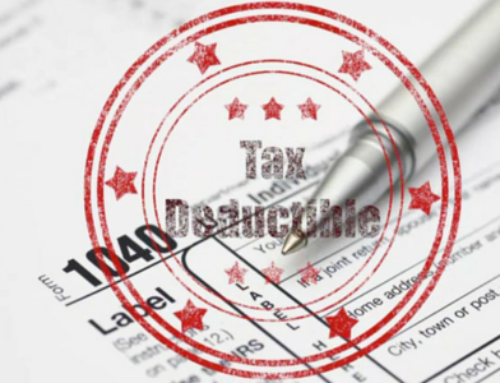In the never-ending quest to reduce your tax burden, the home office deduction seems like an appealing option. With the ability to deduct expenses associated with the business use of your home, the home office deduction applies to both homeowners and renters. But, it’s important to know the rules and regulations of this deduction before you take it. Here are 5 things to know before you decide if you should take the home office deduction.
- You must meet the IRS requirements.
The IRS has a definite opinion about what qualifies as a “home office”. According to the IRS, there are “two basic requirements for your home to qualify as a deduction.” The space used must have “regular and exclusive use” and it must be a “principal place of your business”.
Regular and exclusive use means that you must regularly use a portion of your home exclusively for business. So, if you converted a spare bedroom into an office space and use it only for business purposes, you can take the deduction. On the other hand, if you set up a laptop at your kitchen table, that is not considered a home office.
Principal place of business means that the space is a primary place for your business activities. Note, this does not mean the home office needs to be the only place you conduct business. For example, if you travel to meet with clients, but do all of your correspondence and paperwork from your home office, then the home office would still qualify as a “principal” place of business.
- You can be an employee or self-employed.
It is commonly believed that the home office deduction only counts for self-employed individuals, but this is not true. As long as the home office is used for the convenience of your employer, you can consider taking the deduction.
- You can deduct a portion of many expenses.
If you take the home office deduction, it allows you deduct a percentage of the costs of home ownership and maintenance. Again, this is true whether you rent or own your home. In general, if your home office takes up 10% of your home, you can deduct 10% of the cost of a range of expenses, including – but not limited to:
- Utilities
- Rent/Mortgage Interest
- Real Estate Taxes
- Security costs
- Homeowners association (HOA) fees
- Insurance premiums
- Maintenance and repairs for the space
- But the deduction cannot create a loss
If you are self-employed, you need to make enough money to justify the home office deduction. In other words, if your home office expenses exceed your business income, you cannot take the deduction.
- There are several ways to calculate the home office deduction
The IRS offers two different methods for calculating the home office deduction. The determination of which one is more advantageous to you will depend on several factors. Either way, you’ll want keep receipts, billing statements, and good records.
There are many reasons to take the home office deduction. Contact us to help you decide if you should deduct your home office, and the best way to calculate it in order to maximize your deduction.





